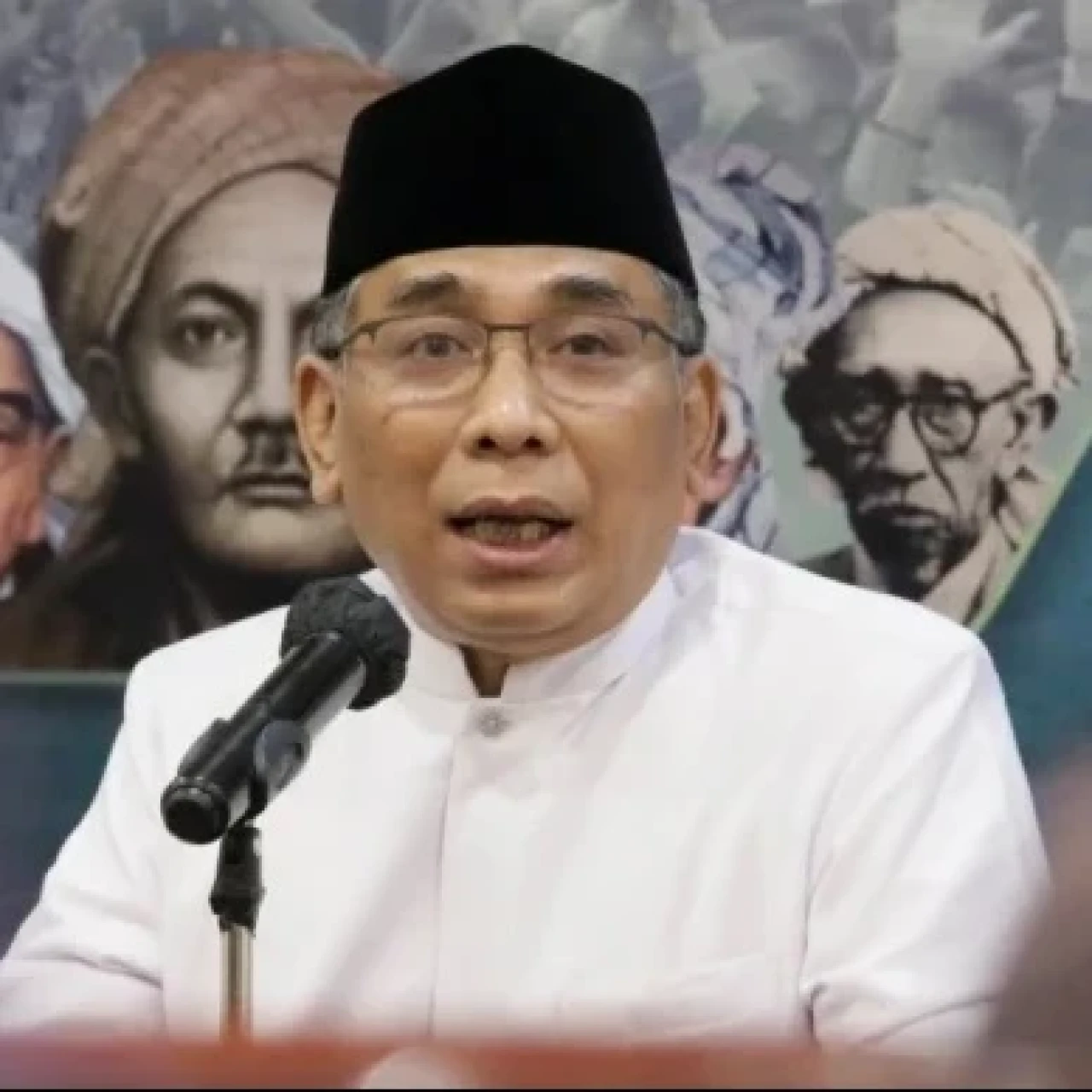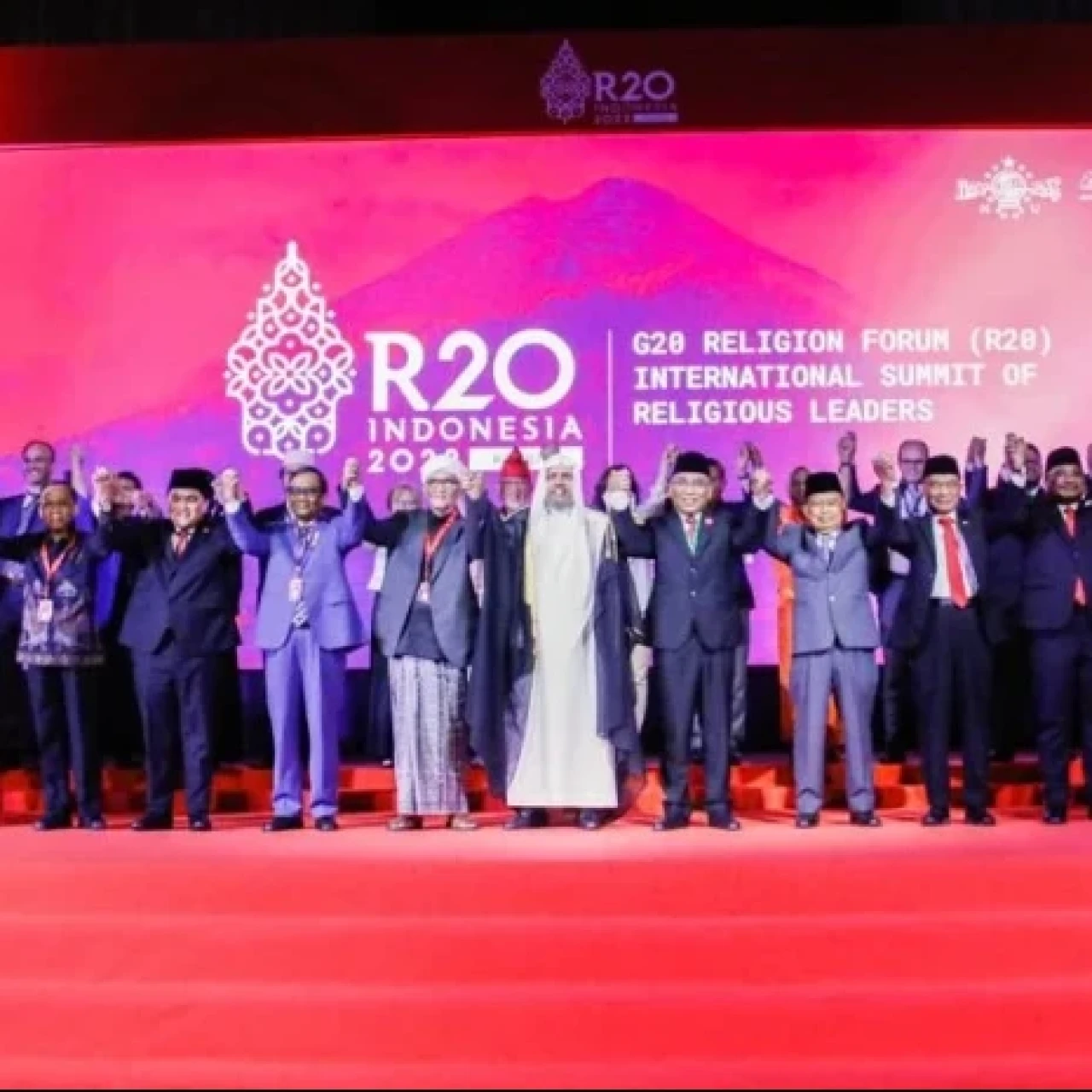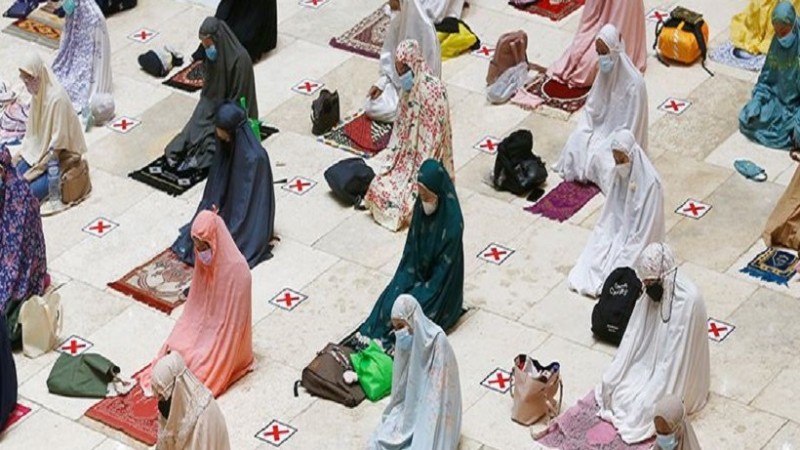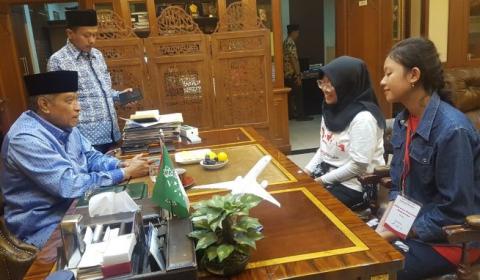Obama is not a true peacemaker in the Arab-Israeli conflict
NU Online · Senin, 8 Juni 2009 | 20:14 WIB
The speech delivered by US President Barack Obama at Cairo University, Egypt, is very attractive, giving an impression that he is able to cultivate relationships with Islamic world. But if his speech is used to be such a means of being optimistic for creating peace in the Middle East, the international world seems to be disappointed.
The conflict between Islamic Arab and Israeli Jewish is a long dispute seeking a neutral stand from a country willing to be mediator or peacemaker to resolve the conflict between Israel and Arab Islamic countries. And US, at this point, is not a true peacemaker or a neutral mediator. US, in its history, has always sided with Israeli Jewish.<>
Let us re-examine the Israeli action while launching military aggression against Islamic group Hammas predominantly living in Gaza Palestine. Though it was strongly condemned and attacked in the session of the UN Security Council, US used veto all decisions made by UN Security Council urging Israel to withdraw its military troops.
The second indication is in the process of peace agreement between Palestine and Israel in which US only involved the nationalist-faction, Fatah, intead of involving another Islamic group Hammas. Whereas Hammas was a political faction willing the general election in 2006. As a consequence, Palestinians' representatives in negotiating the peace process between Israel and Palestine were not in balance.
On account of this trend, let us consider the warning of Jordan King Abdullah on last 12 May. King Abdullah predicted that peace solutions in the Middle East proposed by President Obama would lead to two options. Firtsly, there would be peace in the Middle East. Secondly, there would be new conflicts between Arab and Israel.
King Abdullah's warning seems reasonable. In addition, the role behind the scene played by Zbigniew Brzezinski, Obama's main foreign policy advisor should always be alerted. Because Brezinski, in the era of Jimmy Carter, often undertook hidden agenda giving an impression that Carter often met failure. Whereas the failure was the success of the Brezinski mission.
For instance, the Shah regime in Iran having fully been supported by US for tens of years could be defeated by Ayatollah Khomeini so that in the eyes of Americans and the world Carter is a powerless president for not being capable of securing Iran following the fall of the Shah regime. But in the Brezinski's scheme, his mission was to block Soviet's influence in the Gulf countries. The presence of Khomeini and Islamic group Syi'ite were considered as the triumphs as designed in the Brezinski's sceme in blocking Soviet in the Gulf region.
That is why, the warning of Jordan King Abdullah is not only right and accurate, but it is also brilliant enough to trace possibilities upon various hidden scenario played by President Obama's foreign policy architects.
Even, the Jordan King in the meantime said that the conflict in the Middle East was not a merely dispute between Israel and Palestine. According to king Abdullah the conflict also involved such countries as Lebanon, Syria and Jordan because it was related to the area dispute with Israel like the Golan height Land, Jordan River and the Sinai Peninsula. For that reason, as for King Abdullah, the solution for the Middle East conflict should not only involve Israel and Palestine, but it should also involve Syria, Lebanon and Jordan.
According to King Abdullah, if the peace negotiation was postponed, new conflicts between Islamic countries and Israel would emerge in the coming 12-18 months.
That is why, it is interesting to consider King Abdullah's proposal to involve 57 member countries of the OIC. Moreover, the 57 countries have been considered as the third world ones having important roles in determing international relationships.
That means, if the third world countries do not recognize Israel, the 57 UN member countries would of course not recognize the existence of Israel.
The King Abdullah's proposal is considerably quite brilliant and creative, calling for the importance of an international conference in endorsing peace process in the Middle East between Israel and Arab countries.
That is why, the idea to immediately resolve the conflict in the Middle East by preceding the US as mediator for the Arab-Israeli conflict is no longer appropriate because Muslim countries have regarded the US as the pro-Israel party no matter how symphatetic President Obama's speech at Cairo University Egypt on Thursday (4/6) would be.
Endorsing Russian active roles
Russia, one of the big countries in East Europe, seem to be appropriate actor capable of playing strategic roles as the Arab-Israeli mediator. Its position in the Organization of Islamic Conference (OIC) has been very strong and neutral. Even, the country tends to be more symphatic to the Islamic world. A strategic alliance initiated by Russia and Islamic countries some times ago seemed to have increasingly raised the Russian credit point in the eye of Islamic countries.
By referring to a proposal initiated by Jordan King Abdullah in terms of the importance of holding an international conference, the OIC countries should importantly and quickly endorse the Russian involvement and actove roles as the key actor capable of resolving the Arab-Israeli conflict.
In addition, the OIC countries should also immediately call on Russia to take an initiative in order to hold an international conference. Moreover, Russia has offered itself to host the conference in dealing with any conflict in the Middle East.
Actually, Russia is on strong footing in proceed the initiative. For in fact, till now, there has been no positive dynamics emerging from the peace process in the Middle East. On the contrary, the King Jordan's warning in regard with possible new conflicts in coming 12 to 18 months will come true.
All this is based on the fact that such radical Islamic elements as Hammas in Palestine and Jewish right radical groups in the Middle East will likely be one of the factors of diplomatic deadlock having still emerged till now.
Endorsing the Russian involvement and active roles may be a solution for the diplomatic deadlock. Furthermore, the idea of immediately holding an international conference of Islamic countries related to the conflict in the Middle East has apparently been approved by chairman of the Security Council of the United Nations (UN) on 11 May 2009.
That means, there has been a quite objective view from international community that Rassia is very appropriate to be mediator in resolving the Arab-Israeli conflict. In addition to having no such special interests in the Middle East, Russia has not been in the position to serve one of the conflicting countries. While US with the pressure for Jewish lobby in the country will of course met difficulties to stay neutral.
Needless to say that the Russian neutrality to play mediating roles for seeking peace solutions between Arab and Israel seems to be more reliable.
So far, the solution for the two conflicting countries proposed by President Obama will likely meet deadlock. In the Obama's concept, Israel is forced to OK the establishment of the state of Palestine in the Gaza Strip and West Bank region bordering Israel.
The Obama's solution has strongly been protested by Israeli ultra-right circles so that Prime Minister Netanyahu had reasons to reject the Obama's idea.
In addition, Netanyahu has still held that Palestine is only permissible to have limited sovereignty and without military.
Here is the fact, the peace process proposed by Obama will apparently met a deadlock for the US has no longer been capable of giving breakthrough solutions to escape from the deadlock. As a result, there should be a fresh mediator being able to support the peace process in the Middle East. At this point, Russia, is the best choice and quite reasonable.
The writer is executive director of the Global future Institute (GFI)
Terpopuler
1
Khutbah Jumat: Maulid Nabi dan 4 Sifat Teladan Rasulullah bagi Para Pemimpin
2
Tata Cara Shalat Gerhana Bulan, Lengkap dengan Niat dan Surat yang Dianjurkan
3
Khutbah Jumat: Menjaga Amanah dan Istiqamah dalam Kehidupan
4
Khutbah Jumat: Merawat Keutuhan Keluarga di Era Media Sosial
5
Lusa, Umat Islam Dianjurkan Puasa Ayyamul Bidh Rabiul Awal 1447 H, Berikut Niatnya
6
Tanggapi 17+8 Tuntutan Rakyat, DPR Stop Tunjangan Rumah dan Moratorium Kunjungan ke Luar Negeri
Terkini
Lihat Semua













